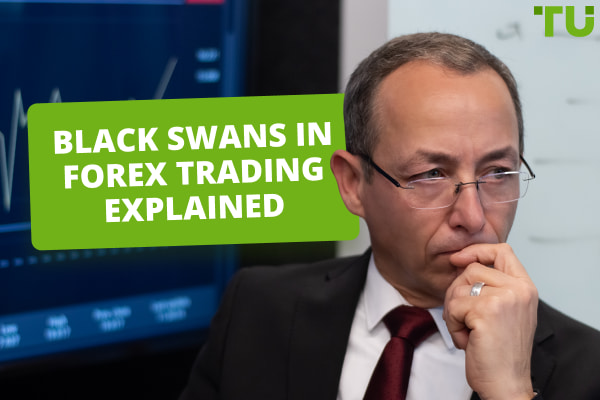Is Forex Trading Halal or Haram? - Halal Investment Guide
When asked whether Forex trading is halal or haram, Traders Union experts concluded that the issue of Forex trading and all other modern forms of currency exchange is a widely debated topic among Muslim scholars. Muslim authorities have passed a significant number of fatwas in support or against the act of Forex trading. However, it is generally accepted that Forex trading is halal.
Is Forex Trading Halal or Haram?
Forex trading can be considered halal. According to Islamic law, something is "haram" or forbidden when the teachings of the Holy Qur'an deems it so. Among the activities prohibited by the Holy Qur'an are gambling and riba, also known as interest or usury.
Since the last two activities are associated with Forex trading, many scholars have argued that Forex trading is haram according to Islamic principles.
However, many have pointed out that not all Forex trading accounts involve interest and gambling, such as Muslim Forex accounts.
Furthermore, the consensus among Muslim scholars is that it's okay to exchange currencies on a spot basis. This is because spot settlement can significantly reduce the usury aspect of Forex trading. On this basis, Muslim theologians have reached a consensus that Forex trading can be considered halal. More on this later.
Interested in Halal Trading? Open an Islamic Account on AvaTradeForex Trading as Usury
Usury or riba in Islamic terms refers to any business contract or deal that involves the charging of interest. The Holy Quran is clear on this issue and condemns the financial transactions that revolve around usury. According to the Holy Quran:
"God deprives interest of all blessings but blesses charity; He loves not the ungrateful sinner."
Surah al-Baqarah, verse 276Financial transactions with the element of riba are strictly condemned. Muslims should also note that not all Muslim theologians agree on what counts and riba and what not. Nevertheless, the prohibition on interest has led to the development of the Islamic banking industry.
Forex brokers, in general, do business by paying or charging the interest differential between the two components of any pair of currency when the position holds overnight. This charging of interest is known as swap commission and a form of interest. However, in light of the above points, it is clear that Islam does not permit such interest rates.
However, to make Forex trading beneficial for Muslims, Forex brokers introduced Islamic Forex trading. In an Islamic setting, the brokers allow investors to hold their positions overnight without paying interest or the swap commission.
These swap-free Forex accounts clear the hurdle of usury and allows Muslim investors to take part in Forex trading. Furthermore, the regular, spot Forex trading accounts are for immediate buying and selling and have no overnight interest charges. They also eliminate the element of riba from Forex trading.
What Islamic Authorities Says About Forex Trading
The issue of Forex trading and all other modern forms of currency exchange is a widely debated topic among Muslim scholars. Muslim authorities have passed a significant number of fatwas in support or against the act of Forex trading. However, it is generally accepted that Forex trading is halal. Consider this hadith as an example:
Ubeda b. al-Simit (Allah be pleased with him) reported Allah's Messenger (Peace be upon him) as saying: "Gold is to be paid for by gold, silver by silver, wheat by wheat, barley by barley, dates by dates, and salt by salt, like for like and equal for equal, payment is made hand to hand. If these classes differ, then sell as you wish if payment is made hand to hand."
Sahih Muslim 1587cFurthermore, according to a fatwa by Sheikh Ibn Bazz, trading of currencies is permissible if all parties abide by Islamic rulings. Sheikh writes in his fatawa:
"Dealing in currency, buying and selling, is permissible, but that is subject to the condition that the exchange is hand-to-hand if the currencies are different. For example, suppose a person sells Libyan currency for American or Egyptian or whatever currency hand to hand. In that case, there is nothing wrong with that, such as if he buys dollars for Libyan currency hand to hand, exchanging it in one sitting, or he buys Egyptian or English currency, etc. for the Libyan or whatever currency hand to hand, there is nothing wrong with that. But if there is a delay, then it is not permissible, and if the exchange is not done in the same sitting, it is not permissible because it falls under the category of riba-based transaction. So the exchange must take place in the same sitting, hand to hand if the currencies are different."
Majmoo’ Fataawa Ibn Baaz 19/171-174As mentioned above, Forex trading and all other kinds of currency trading are permissible in Islam. However, there are a few caveats to keep in mind.
Forex trading is acceptable under the following conditions:
-
The exchange is made in the same setting in which the contract took place
-
It's essential to keep in mind that the person has to exchange the currency in the same setting where they initially signed the contract for the trade to be permissible. This is under Islamic rulings.
-
The exchange is made hand-in-hand without delay
-
The trader needs to ensure that the transaction is carried out at the earliest and all delays are avoided. If the transaction is delayed, the transaction will be considered usury and become problematic for a Muslim Forex trader.
-
There are no interests rates involved
-
Lastly, for the transaction to be considered halal, there should be no interest involved in any form. These include swap-free transactions and spot Forex accounts.
What Is An Islamic (Swap-Free) Account?
An Islamic trading account is a swap-free account that implements the Islamic rulings on Forex trade by forbidding the accumulation and payment of interest rates. The main issue of Forex trading is the possibility of earning income through swaps. That's why these accounts have banned the possibility of earning profits during a swap.
These accounts ensure that the transactions made by the traders are carried out without a moment of delay. Moreover, currencies are traded in the same setting as that of the contract by eliminating future and forwards transactions.
Though, brokers often charge additional fees for their swap-free accounts. Islamic Forex accounts also ensure that the transactions are Islamic by observing the following Islamic rulings:
-
Prohibition of all forms of riba
-
Prohibition of overnight rates
-
Prohibition of gambling
To summarize, Islamic Forex accounts are thoroughly compatible with Sharia laws and appropriate for use by Muslims to earn profits.
Three Best Islamic (Swap Free) Accounts in 2024
Here is a brief list of the top three Islamic swap-free accounts for Muslim clients.
RoboForex Islamic (Swap Free) Account
RoboForex provides a specialized account option known as the Islamic Swap-Free account. This account type is designed for Muslim traders who wish to participate in Forex trading while complying with Islamic finance principles.
According to Sharia laws, trading with swaps is not permitted for Muslims. Instead of the typical swap fees, a fixed commission is charged for each trade, which is determined by the specific instrument and number of open lots. This commission is not dependent on the interest rates set by banks. The Swap-Free account option allows Muslim traders to participate in Forex trading without violating Islamic finance principles.
Tickmill Islamic Account
Tickmill offers Islamic accounts that comply with the principles of Sharia law. These accounts, also known as swap-free accounts, do not charge any swap or rollover interest on overnight positions, which is against the Muslim faith.
Muslim clients can open any account type (Classic, Pro, or VIP) with Tickmill and convert it to an Islamic account in order to benefit from the same trading conditions and terms as regular accounts. The only difference is that there are no swaps on trading instruments, but a handling charge may apply for holding certain trading instruments overnight for more than three consecutive nights.
Tickmill's Client Support team will process the request for an Islamic account status within one business day, and subsequent trading accounts opened by the client will automatically be classified as swap-free accounts.
XM Islamic Account
XM group is composed of regulated online brokers. This platform has over 1.5 million clients, with traders from 196 countries. The platform is known for its top-notch customer service and a personalized approach towards its clients.
XM Group boasts over 1000 financial instruments that users can trade on platforms such as Forex trading and many kinds of CFDs. XM offers a minimum spread of 0.1 pip across all of their accounts. The other trading conditions also remain the same across all of their trading accounts.
XM group also has no hidden fees or commission policy. Unlike many other Forex brokers who demand higher commissions to eliminate swaps, the XM group does no such thing. Furthermore, the XM group does not substitute this commission by widening its spreads.
How to Apply for Islamic Account
Here we will provide a brief guide on how you can apply for the Islamic status of your account. Let's take the example of an XM broker. The first thing that you need to do is to open a trading account with XM.
Then, you have to login into the members and get your account validated by the XM broker. Once you open your account, you can request your account to be converted into an Islamic trading account. As soon as XM receives your request, they will shift your account to a swap-free status.
Please keep in mind to not trade before your account is converted into an Islamic account as you will be charged for interest, and XM won't be able to switch your account to swap-free mode.
Short Selling And Islam
Another topic that has been a subject of a lot of hot debate among Muslim circles is short selling. Here, we will discuss its permissibility according to Islamic rulings as it has a lot of relevance to the topic of Forex trading. Many of the existing terminologies of modern trading derive from the stock market.
In the stock market, short selling refers to the advanced strategy that expert investors employ to speculate on the decline in the stock market or prices of securities. The strategy is used to generate profits. To do this, stock traders borrow shares of a stock that the trader believes will decline in value, sell them to a willing buyer, and then pay interest money to the stock lender.
In light of the aforementioned Islamic rulings, it is clear that such a transaction is haram as it operates within the framework of riba. Now let's look at the meaning of this term in the context of Forex trading.
In the Forex trade market, short selling merely refers to the common practice of opening a position in hopes that the market declines in value. Later, the position is closed, and the Forex trader can sell his assets for a margin of profit. Unlike stock markets, there is no element of riba involved in this short selling.
Read also: Is copy trading halal or haram in Islam? in the TU article.
Halal Investment Guide
We understand that Forex trading can be complex and difficult to do for someone belonging to the Muslim faith. That's why we have three tips on how you can avoid haram transactions in trading.
1. Trade on an Islamic account
The first thing you need to do is choose a broker that respects your religious beliefs and ensures that all transactions abide by Islamic rulings on halal and haram.
2. Do not make trading a gamble
It would be best if you kept an eye on your investments. Using too much leverage and not following risk management rules can turn your transactions into a gamble. Read more in the article: Can You Use Leveraged Trading In Islam? Is It Haram Or Halal?
3. Pay taxes and follow the rules
Simply pay all your dues and abide by the regulations.
Is Forex Legal in Muslim Countries?
Forex trading is legal in most countries. Except for a few Muslim countries that operate under Sharia law. Here's a list of Muslim countries along with the status of Forex trading in those countries:
| Country | Legality of Forex |
|---|---|
|
Afghanistan |
Illegal |
|
Iran |
Illegal |
|
Pakistan |
Illegal |
|
Iraq |
Illegal |
|
Malaysia |
Illegal |
|
Nigeria |
Restricted |
|
Egypt |
Restricted |
|
Maldives |
Illegal |
|
Mauritania |
Illegal |
|
Qatar |
Illegal |
|
Yemen |
Illegal |
|
United Arab Emirates |
Illegal |
|
Sudan |
Illegal |
|
Saudi Arabia |
Illegal |
Halal Investments in Other Markets
Now let's discuss the implications of Islamic rulings and sharia law on other investment and trade markets. For example, one common question is whether trading stocks or CFDs is permissible for a Muslim. We will shed light on these questions in reference to sharia law.
Is Stock Market Haram or Halal?
One of the major issues that Muslims in the stock market raise is that investors are paid by interest or, in other words, riba. The second objection is that the lender does not share the borrower's risk.
Any earning through interest is unjust and exploitative in the eyes of Islam. Lastly, it is forbidden to invest in stocks used to support an unlawful business in the eyes of Islam, such as alcohol production or casinos.
To eliminate these conditions, Muslims invest only in halal stocks and funds described as sharia law investments. As long as the above conditions are avoided, investing in stocks is halal.
Is CFD Trading Halal?
Although CFDs typically involve interests and thus might be problematic for Muslims, Islamic brokers take care not to demand any overnight interest rates from Muslim clients. The second aspect is leverage; if the leverage is removed, then the trading of CFD is thoroughly halal and appropriate for Muslims.
Is Forex Trading a Gamble?
While on the surface Forex trading may appear similar to gambling, there are several important distinctions between the two. Unlike casino-style gambling, where the odds are statistically against you, Forex trading can be a profitable endeavor when approached with the right skills and strategy.
Successful Forex trading relies on conducting thorough technical and fundamental analysis to make informed predictions, rather than just blind luck. A disciplined trader utilizes tools for risk and money management to limit losses, waits for high-probability setups, and sticks to a trading plan without being swayed by emotions of greed or fear. These principles align Forex trading more closely with professional investing compared to gambling's tendency toward impulsive and reckless decision making.
It is true that short-term Forex speculation can seem akin to gambling in its uncertainty and high risk if not managed properly. However, looking at Forex trading from a broader perspective, it involves the exchange of currencies necessary for international commerce and serves an economic purpose for businesses and investors. The Forex market's daily turnover of over $7 trillion dwarfs that of other financial markets.
Overall, while Forex trading does share some superficial similarities with gambling, it fundamentally relies on research, strategy, and disciplined execution. Casting Forex trading as pure gambling is an oversimplification that glosses over its legitimate role in global financial markets and economy. With the right diligence and precautions, it is very possible for traders to manage risk and generate consistent profits over time.
Summary
In conclusion, while Forex trading, in general, is forbidden under sharia law, a modified version of Forex trading, i.e., Islamic swap-free version, is completely permissible and halal for Muslims to invest.
FAQs
What are the conditions for Forex trading to be halal?
Trading must be done on a swap-free account, involve physical delivery instead of futures/margins, avoid uncertainty, not involve interest, prohibited items, or hoarding of essential goods.
How do you convert a normal account to an Islamic one?
Contact the broker's customer support and submit a request. They will review and switch the account status to swap-free within 1-2 business days.
Is day trading considered halal according to Islamic laws?
Day trading is permissible as long as it follows the Sharia principles of no riba, gharar or speculative activities. Traders should avoid highly leveraged day trading involving potential excessive risk.
Can I trade commodities like gold on a Muslim account?
Yes, trading commodities like gold and silver is generally halal since they are physical assets. But futures/margin trading involving riba is forbidden according to most Islamic scholars.
Team that worked on the article
Alamin Morshed is a contributor at Traders Union. He specializes in writing articles for businesses who want to improve their Google search rankings to compete with their competition.
Over the past four years, Alamin has been working independently and through online employment platforms such as Upwork and Fiverr, and also contributing to some reputable blogs. His goal is to balance informative content and provide an entertaining read to his readers.
His motto is: I can dream or I can do—I choose action.
Dr. BJ Johnson is a PhD in English Language and an editor with over 15 years of experience. He earned his degree in English Language in the U.S and the UK. In 2020, Dr. Johnson joined the Traders Union team. Since then, he has created over 100 exclusive articles and edited over 300 articles of other authors.
The topics he covers include trading signals, cryptocurrencies, Forex brokers, stock brokers, expert advisors, binary options. He has also worked on the ratings of brokers and many other materials.
Dr. BJ Johnson’s motto: It always seems impossible until it’s done. You can do it.
Mirjan Hipolito is a journalist and news editor at Traders Union. She is an expert crypto writer with five years of experience in the financial markets. Her specialties are daily market news, price predictions, and Initial Coin Offerings (ICO). Mirjan is a cryptocurrency and stock trader. This deep understanding of the finance sector allows her to create informative and engaging content that helps readers easily navigate the complexities of the crypto world.














